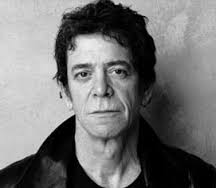
Rocker Lou Reed helped take Hip Hop on a walk on the wild side
by Andrew Gretchko
For years, rappers have made attempts to emulate the party-crazed rock & roll bands that were so prevalent decades ago. From Kanye West’s claim that he’s the “number one rock star on the planet,” to Lil Wayne’s constant reminders that he’s not only the “best rapper alive,” but a rock star as well, it’s clear that rock’s legacy lives on in hip-hop.
But while many hip-hop heads may be unfamiliar with the guitar-crazed artist’s that influenced many of today’s MCs, the passing of Brooklyn-born rocker Lewis Allen “Lou” Reed should resonate with fans of the genre just as much as it did with the slew of artists who have since paid their respects to their fallen comrade.
Born in 1942, Lou Reed’s experimental style came to light during the ‘60s when he was part of The Velvet Underground, and later during the ‘70s when his solo career exploded after the release of the track “Walk on the Wild Side.” Never heard of it? The quirky down-tempo groove was once again launched into the spotlight two decades after its birth when it was used as a sample in A Tribe Called Quest’s “Can I Kick It,” making Reed’s music instantly recognizable to generations of new fans, whether they knew it or not.
Since Reed’s passing on Sunday, October 27, those same fans, some of them popular musicians and friends of Reed, have showed an outpouring of love towards the popular artist. Taking to social media to pay their respects, groups like the Gorillaz – who worked with Reed on the track “Some Kind of Nature” for their 2010 album Plastic Beach – along with The Roots’ drummer QuestLove and Def Jam co-founder Russell Simmons, all voiced their disbelief and sadness. As the music industry at large honored a legend, hip-hop joined in to pay its respects.
When considering an artist like Reed, it’s not only important to appreciate their music, but to understand how they changed the culture and art form, leaving a legacy that can still be felt today. Known among other things for his monotone style – the same tactic used by the late Guru of Gang Starr – Reed broke down barriers that turned rock lyrics into complex poetry, a trend that has come, gone, and returned again to the lyrics of hip-hop during its continued evolution.
Using writing to capture a time and place in American history, Reed painted a vivid picture of New York City’s darker days during the ‘60s and ‘70s, the same way many of today’s MCs note the struggles of their respective cities. Regardless of whether Reed was the first to turn the situation around him into song, his street-level perspective has been embodied by hip-hop, which has been used as a tool of empowerment capable of breaking down racial stereotypes and evoking thought in the minds of millions.
While it may not be easy to take a step back and think of the continued progression of music at-large, hip-hop has undergone more scrutiny since becoming one of today’s most dominant genres, and as it continues to grow it has become more apparent that hip-hop has learned from its predecessors. Just like Reed, many of today’s rappers have to fight for their often-obscene lyrical content to be played, and much like Reed, many of today’s rappers realize their power to change much more than the Billboard Top 200 charts.
It is in this way that Reed’s influence may be most felt in hip-hop: No matter what stood in his way, Reed wouldn’t be denied. He didn’t make music for the masses – at least not at the time. It’s been said that as few as 30,000 people bought The Velvet Underground’s first album in a span of five years, yet Reed kept marching on, refusing to be held back by the constraints of mainstream music, much the same as artists like Kanye West. Look at Yeezus, which sold fewer copies than J. Cole’s Born Sinner. While Kanye had the unorthodox “Black Skinhead” and the sample-heavy “Bound 2,” Cole had the catchy duo of “Power Trip” and “Crooked Smile,” each of which became radio hits as Kanye’s music lingered in iTunes libraries and Spotify playlists.
But thanks to Reed (and other artists like him), success isn’t always measured by the Billboard charts or album sales. Instead, experimentation is rewarded by fans who understand the importance of albums like Yeezus for music as a whole, and thanks to both the fans who are open to experimentation and the artists willing to get creative, music will continue to evolve and grow.
